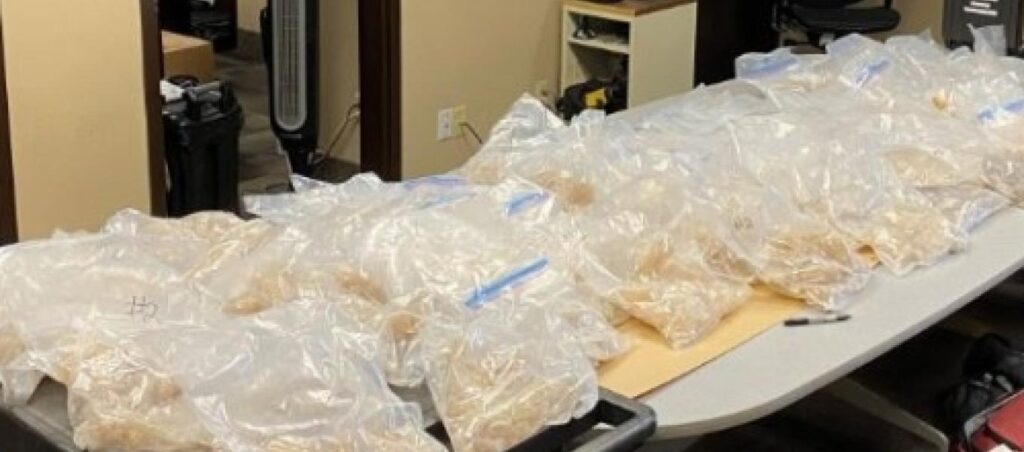An Indian man from Punjab has been sentenced to over 17 years in a US federal prison for his role in a major cross-border drug smuggling case involving MDMA, also known as “Molly”.

On August 29, United States District Judge Thomas O. Rice handed down the sentence to 31-year-old Jaskaran Singh, who was living in the US after being granted asylum. Following the completion of his prison term, Singh will face removal from the country, an official news release said.
The case against Singh was built after an incident on April 29, 2023, when US Border Patrol officers detected suspicious movement near the US-Canada border at around 10:00 p.m. Surveillance cameras recorded three individuals entering the US illegally from Canada in a remote area near Danville, Washington. They were seen carrying backpacks and a suitcase while moving through rugged terrain. The only accessible road from that area was a dirt path known as Fourth of July Creek Road.
Shortly after the border crossing, officers noticed a 2014 Honda Odyssey travelling on the same road. They stopped the vehicle and found Singh behind the wheel. In the rear section of the van, agents spotted backpacks and a suitcase matching those seen with the border crossers just minutes earlier. A lawful search of the vehicle revealed 173.7 pounds of MDMA, with an estimated street value of nearly USD 8 million.
Investigators found further evidence on Singh’s mobile phone, including a map of the border area and instructions received through the encrypted messaging app Signal. These messages directed him where to go and included instructions such as “leave the back hood open”.
Although Singh had deleted the app just before his arrest, forensic experts were able to recover the data and present it to the jury during trial.
According to the prosecution, Singh had booked a flight from Northern California to Seattle the day before the incident. From there, he rented the Honda Odyssey and drove to the isolated location near the border to collect the drugs and transport them further into the country. Meanwhile, the three individuals who brought the drugs across the border managed to return to Canada without being caught.
Earlier this year, a federal jury found Singh guilty beyond a reasonable doubt. The trial showed how Singh coordinated the drug pickup with the help of encrypted communication and used a rented vehicle to avoid detection. The operation was closely monitored by federal authorities, who later confirmed Singh’s involvement through digital evidence and surveillance.
United States Attorney Pete Serrano appreciated the team effort that led to Singh’s conviction. “This case is significant in so many respects, from the removal of this significant quantity of drugs from our streets, to the seamless cooperation of our federal partners at the northern border. I’m proud of our team and am grateful for the outcome of this case,” Serrano said.
David F. Reames, Special Agent in Charge of the DEA Seattle Field Division, also commented on the sentencing. “The DEA, along with our partners at the Border Patrol and HSI, take the territorial integrity of the United States very seriously. We aggressively investigate traffickers like Mr. Singh who, out of greed, smuggle dangerous drugs into the United States from Canada or anywhere else. This lengthy sentence holds Mr. Singh accountable and stands as a warning to others that we will not tolerate drug traffickers abusing our free society.”
Jason C. Liebe, the Chief Patrol Agent for the Border Patrol Spokane Sector, added, “US Border Patrol agents work tirelessly every day to protect America and her borders from national security threats, no matter how they present themselves. This joint investigation and successful prosecution demonstrate the power of collaboration among federal agencies. When we combine our resources, we achieve the successful resolution of criminal cases that make our communities safer and stronger for all Americans.”
The case was jointly investigated by the US Border Patrol, Drug Enforcement Administration (DEA), and Homeland Security Investigations (HSI). It was prosecuted by Assistant United States Attorneys Alison L. Gregoire and Dan Fruchter.


